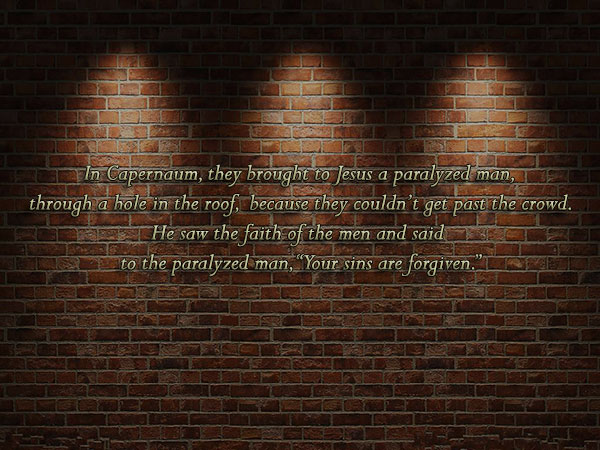Mk 6:14-29
King Herod also heard about Jesus, because his name had become well known. Some people said, “John the Baptist has been raised from the dead, and that is why miraculous powers are at work in him.” Others thought, “He is Elijah,” and others, “He is a prophet like the prophets of times past.” When Herod was told of this, he thought, “I had John beheaded; yet, he has risen from the dead!”
For this is what had happened: Herod had ordered John to be arrested; and had had him bound and put in prison because of Herodias, the wife of his brother Philip. Herod had married her; and John had told him, “It is not right for you to live with your brother’s wife.” So Herodias held a grudge against John and wanted to kill him; but she could not, because Herod respected John. He knew John to be an upright and holy man, and kept him safe. And he liked listening to him; although he became very disturbed whenever he heard him.
Herodias had her chance on Herod’s birthday, when he gave a dinner for all the senior government officials, military chiefs, and the leaders of Galilee. On that occasion, the daughter of Herodias came in and danced; and she delighted Herod and his guests. The king said to the girl, “Ask me for anything you want and I will give it to you.” And he went so far as to say with many oaths, “I will give you anything you ask, even half my kingdom.” She went out and said to her mother, “What shall I ask for?” The mother replied, “The head of John the Baptist.” The girl hurried to the king and made her request, “I want you to give me the head of John the Baptist, here and now, on a dish.”
The king was very displeased, but he would not refuse in front of his guests because of his oaths. So he sent one of the bodyguards, with orders to bring John’s head. He went and beheaded John in prison; then he brought the head on a dish and gave it to the girl. And the girl gave it to her mother. When John’s disciples heard of this, they came and took his body and buried it.
REFLECTION
Today’s gospel reading illustrates just how the first of the Seven Deadly Sins, Pride, can be progressively, but really, deadly.
First we see King Herod imprisoning John the Baptist because the latter is publicly accusing him of incest. Although this accusation is based on fact—Herod is actually living with his sister-in-law as man and wife—Herod cannot accept being publicly branded of his sin and silences John.
Then comes the dance of young Salome, Herodias’ daughter (we know her name from pagan historians). We can understand Herod’s enthusiastic admiration for it, but why indulge in extravagant promises (half of his kingdom)? Isn’t that sheer bluster, boastful talk, vocal swagger—pride again?
Finally, again out of sheer pride Herod refuses to back out of his foolish oaths. He does not want to lose face in front of his guests. And, because of his demonic pride, he murders a man of God. Such is the inexorable dynamics of pride. It is a deadly sin because it inevitably brings death when we give it a free rein. Such was the sin of Adam and Eve (“you shall be as gods” – Gen 3:5), remember?
CLARETIAN COMMUNICATIONS FOUNDATION, INC.
8 Mayumi Street, U.P. Village, Diliman, 1101 Quezon City, Philippines
Tel.: (02) 921-3984 • 922-00-11 • 921-28-59 Fax: (02) 921-6205, 927-7429
Bookstore: (02) 924-6835
Email: ccfi@claretianpublications.com / cci@claret.org
Website: www.claretianpublications.com







